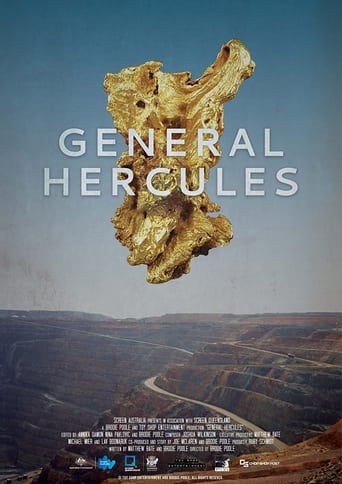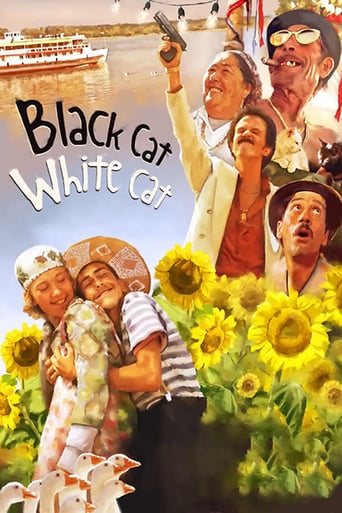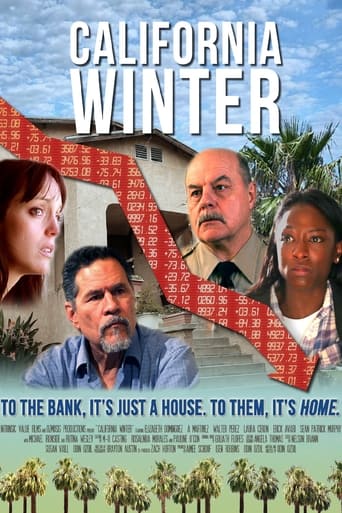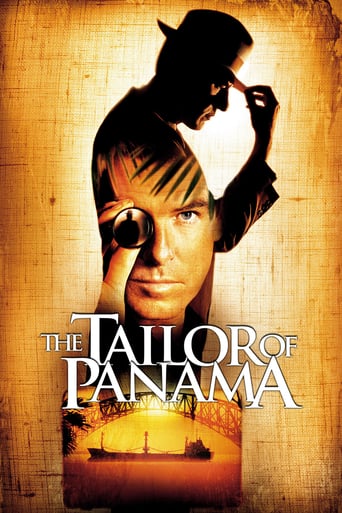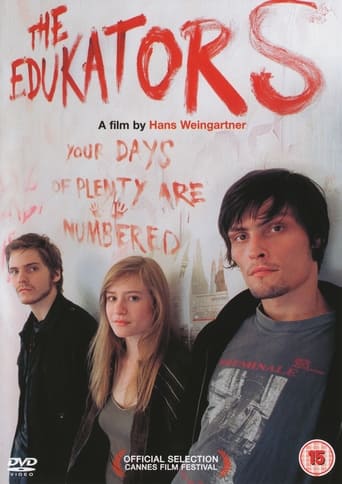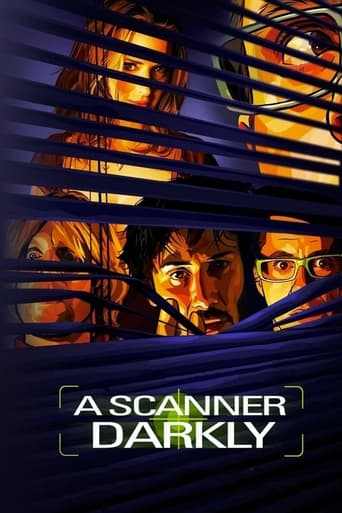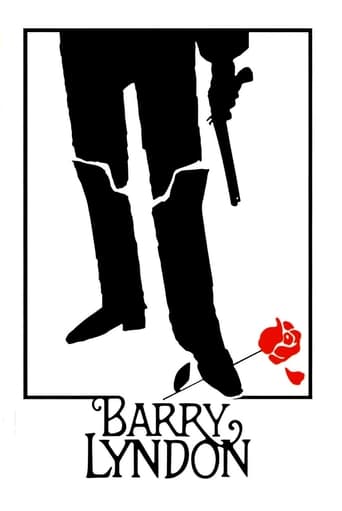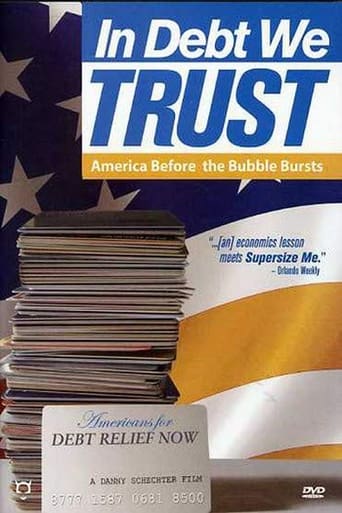

In Debt We Trust: America Before the Bubble Bursts (2007)
Emmy-winning journalist Danny Schechter investigates America's mounting debt crisis in this latest hard-hitting expose. The film reveals the unknown cabal of credit card companies, lobbyists, media conglomerates and the Bush administration itself who have colluded to deregulate the lending industry, ensuring that a culture of credit dependency can flourish. Schechter exposes the hidden financial and political complex that allows the lowest wage earners to indebt themselves so heavily that even house repossessions are commonplace.
Watch Trailer
Cast


Similar titles
Reviews
This documentary has a title which plays ironically upon the motto of the United States, which appears on coins: 'In God we trust.' The theme is that debt, in the form of credit addiction, has now largely taken the place of God in America, and Debt is indeed a wrathful god! The film indirectly predicted the financial collapse of 2008 two years before it happened, so it is an extremely important historical document which lays bare what was happening, and hints at what was about to happen, and did. A man interviewed in the film describes and criticizes those strange inventions of financial fraudsters known as 'securitisations'. Probably no one seeing the film at the time knew what he was talking about, but we all know now. 'Securitisations' were ways of packaging bad debts into complicated bundles which were 'sold as debt' to banks and investors. The man describes the process: you take a house worth $400,000, give a loan against it of $800,000 which you know can never be repaid, then incorporate that bad loan in something complicated called 'securitisation' and sell it to a sucker. You then have sold the worthless debt and have cleared your own investment. This is straightforward fraud, of course, but since this happened many thousands of times and was done by all the leading banks and lenders, and the entire financial system was implicated, no one has been prosecuted, and all the bad debts were simply passed on to the taxpayers, and everyone involved in the gigantic scam got their money in the form of what is euphemistically called 'bail-outs'. So the crooks won and will never be punished. The ultimate suckers were the public. If you look more closely at what happened at the Government level, let us consider the case of Hank Paulson, Secretary of the Treasury, who was given the power to decide who would get how much 'bail-out'. He was the former CEO of Goldman Sachs. Of course it is pure accident that he gave Goldman Sachs billions and billions of dollars. When at Goldman Sachs his main competitor was Lehmann Brothers. Of course it is also pure accident that Lehmann Brothers got nothing and was allowed to collapse. I have never seen anyone in the financial press ever even whisper the words 'conflict of interest'. Perhaps they don't know what those words mean. Hank Paulson must therefore be some kind of hero, don't you think? If your name is Goldman or it is Sachs? But this film mainly deals with credit cards and accuses the credit card companies and banks of trying to turn the entire nation of America into credit junkies, at which they have admirably succeeded. Indeed, the intention to attach lifelong debt to every human being on the planet is well underway. What better way to control people? In this film there is an interview with a family who were sitting having lunch one day when a law enforcement officer turned up and said they had ten minutes to get out of the house, as it was being repossessed. They had to leave all their clothes and belongings behind, and the lunch sitting half eaten on the table. Yes, 'in God we trust', for there is only God left when the system is so rotten, the culture so corrupt, the exploitation of every citizen so ruthless, that children can have their lunch ripped from their mouths and be thrown onto the street without a possession to their name. That is America today. The film then goes on to explain how all the politicians in Washington depend upon the banks and financial institutions for their campaign money so refuse to do anything to stop this credit mania which is destroying the country. The film criticises the national debt for being out of control, but it is now five years later and it is still rising insanely. The film explains that America has become a nation of consumption, and that two thirds of its GDP is money spent internally on consumption and hence not earned from outside (and this is funded by the Chinese buying American bonds so that the American economy does not collapse because if it does China, which is based upon exports, might then collapse too because of being unable to continue selling to America). This is a sick, rotten, and wholly unsustainable situation, of course. The film shows how credit card companies and banks are targeting teenagers and offering them credit cards, in order to habituate them to living on credit, and becoming indebted for the rest of their lives. Many horrifying examples and case histories are given. One girl in her twenties who has 'gone straight' cheerfully says it will only take her six more years to clear her debt and then she will be 'free'. But will she? Will anybody? How long can this go on? The crash we have had so far is nothing compared to what must be coming. I was horrified to see that a Canadian reviewer has viciously attacked this film and called it worthless. He must work for a credit card company! The film was made on a very low budget by an investigative journalist called Danny Schechter, and its production values are not of the highest. But he should not be criticised, he should be praised for going to all this trouble to try to warn the unheeding and mindless public who are rushing towards their doom by living a lie and are the sacrificial victims of corrupt politicians, financiers, and bankers, who themselves will be ruined when the whole system comes down around their ears, bringing everything we think of as 'modern civilisation' with it. It will be very grim when it happens, very grim indeed. But at least people will stop chattering nonsense to each other on their cellphones at last and be forced to face something they don't at the moment know exists, known as Reality.
This documentary shows the influence of debt in everyday life. From consumer dependence, credit card advertisement, the economic system to politics and law.This documentary was definitely worth watching. It informs about the forms of debt you get offered by corporations, showing all consequences of the deal. It sheds light on the dark side of consumer debt.What surprised me is that no other reviewer mentions that this documentary predates the 2008 economic collapse. It tells about sub-prime loans, reselling of mortgages by banks and the uneven battle between individual consumers and big corporations.
You could say that people who get enslaved in credit card debt have no financial sense and its their own fault. This film, however, shows clearly and informatively how big business and government cooperate to encourage senseless financial behavior, to the profit of the rich and loss of everyone else. It articulates well the observation of mine and many others that our society is quickly heading toward feudalism. I thought this film was much better than another current production, "Maxed Out", because it presents a comprehensive and complete picture of the situation doesn't attempt to be a drama. Everyone who spends money in the US should watch this.
What a load of crap! What a surprise, credit cards charge interest. Students are bad with money! Short Term Loans are a bad idea. Besides the fact there is no real insight in this movie, it is cheap looking, the sound is horrible, and they jump from idea to idea without offering any concluding thought. There is a lot of corruption in the money lending industry and this is a large scale problem in North America. This movie gives you nothing that opening your credit card statement can't already give you. I am all for documentaries, but this looks like it was thrown together on a weekend by a community college instructor with music by a local dinner theatre. If you want to prevent yourself from going into debt, save the $4.00 you'd spend on renting this garbage.


